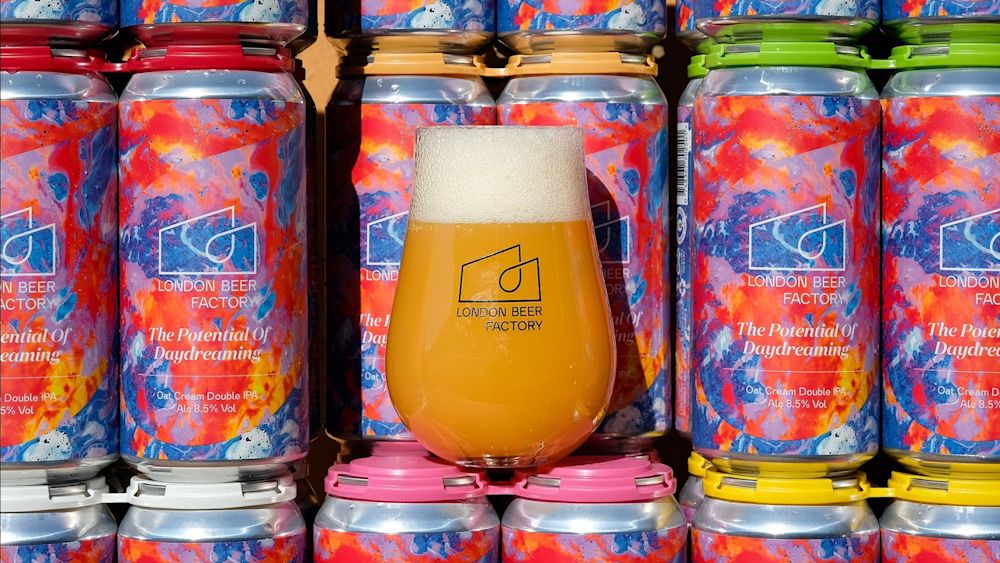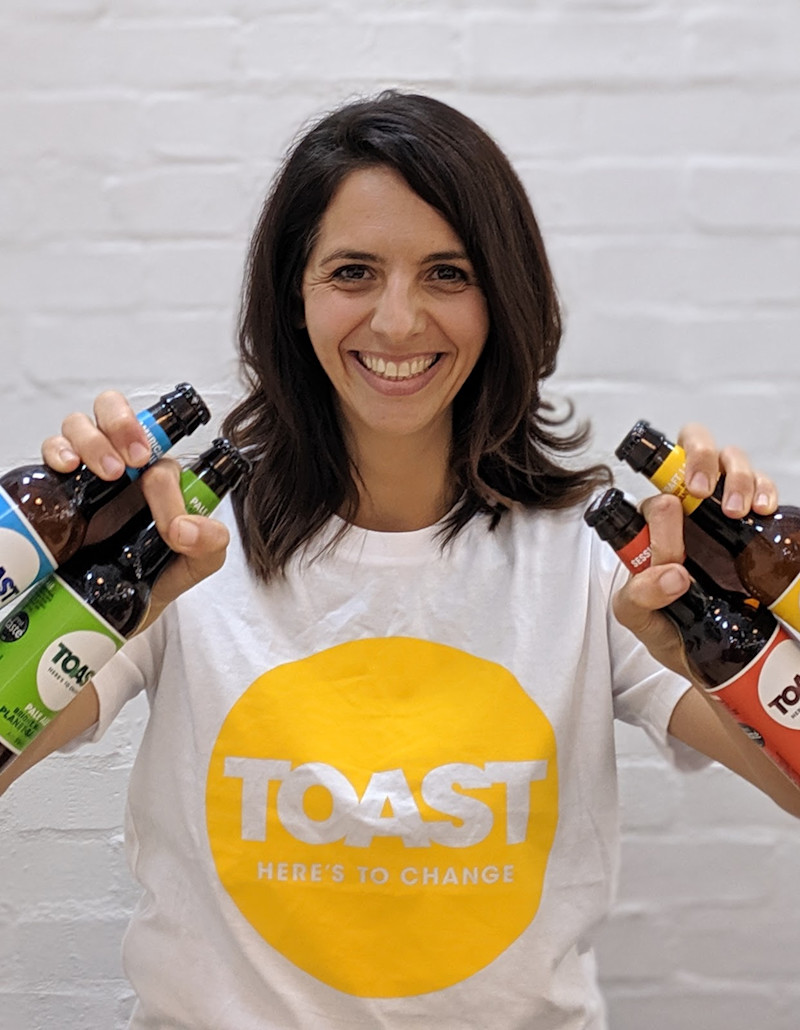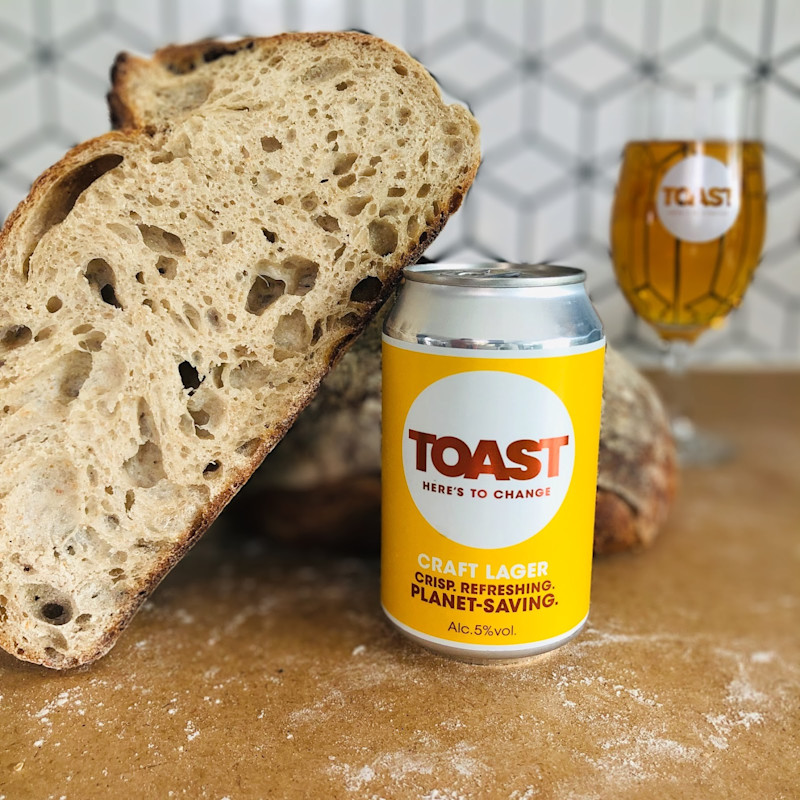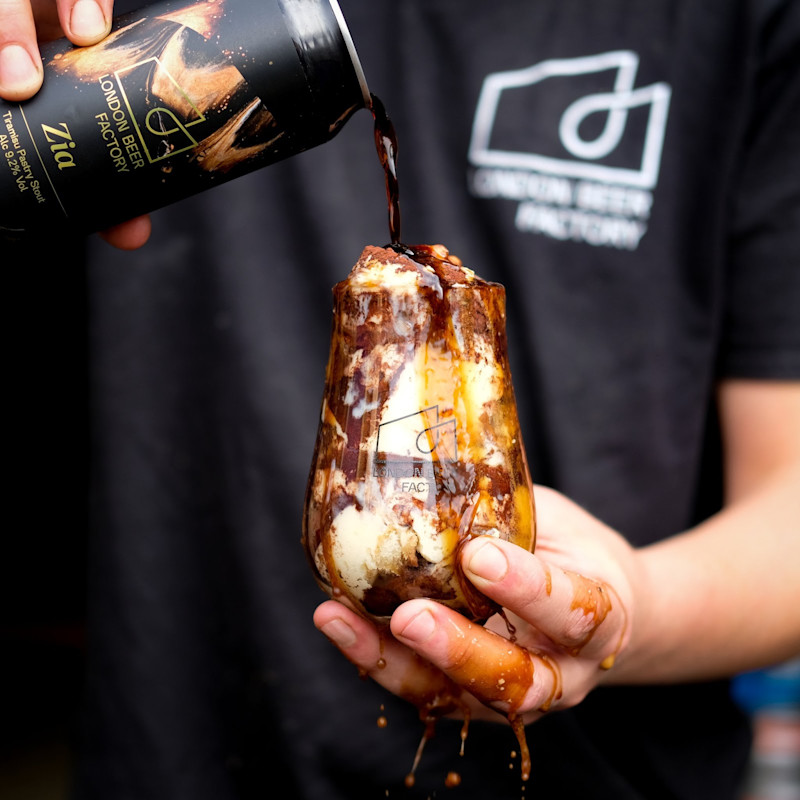Sustainable Alcohol: Londoners Getting Tipsy For a Cause
Table of contents
The food and beverage industry sustainability boom has been prevalent all around the UK -- British people spent ┬Ż8.2 billion on food and drink from ethical sources last year alone.

The pub is a profoundly serious institution in the United Kingdom. ItŌĆÖs almost as serious as sitting at the bar and complaining about the prices of your beverage of choice - be it a pint of lager or a G&T - going up.
However, more and more consumers are starting to question the true cost of their drink on the environment. The amount of energy consumed by the production process (which can include malting, fermenting, boiling, and distilling) can be just as damaging to our planet as the lack of effective waste management of cans and bottles.
The food and beverage (F&B) industry sustainability boom has been prevalent all around the UK. According to the in the UK, British people spent ┬Ż8.2 billion on food and drink from ethical sources last year alone. Efforts to make food and beverages ethical can be observed in any part of the supply chain - from negotiating fairer wages for farmers to using eco-friendly packaging.
A number of global organisations have been at the forefront of helping consumers identify whether their drinks and meals have been sourced sustainably, but this movement has spread locally as well. The Org spoke to two sustainable alcohol companies in London working hard to usher in a more eco-conscious era of drinking to find out more about why, and how, that shift is taking place.
Toast Ale
*ŌĆ£I donŌĆÖt think alcohol should be cheapŌĆØ ŌĆö Toast Ale COO Louisa Ziane *
The COO of Toast Ale, Louisa Ziane, is relying on the fact that none of us like the end pieces when it comes to bread. ThatŌĆÖs largely what this brewery uses to create its drinks, hoping to help eliminate food waste and the endless cycle of food poverty.
Toast Ale was founded in London in 2016 and has since expanded to the U.S., South Africa, Brazil, Iceland, and Sweden. The company, which made ┬Ż880k in revenue last year, gives 100% of its profits to charities which aim to fight food waste. It was the first brewery in the UK to be a ŌĆ£,ŌĆØ which aims to make businesses more beneficial for the environment and the societies they operate in.
Ziane and co-founder Tristram Stuart had the idea to make beer from bread after meeting with a Belgian brewer who was doing just that. Making alcohol from fermented bread is a custom across many cultures, and goes back to the Babylonian times; Ziane and Stuart thought it was a fun engaging way to bring the tradition into the mainstream in the UK, which tackled the important issues around food waste head on.
For Ziane, thatŌĆÖs the key to approaching a big and complex problem ŌĆō you start by talking about it. And what better way to start a chat than with a pint?
She says that most people are drawn in because theyŌĆÖre curious to taste the beer ŌĆō but the momentum of the sustainability push in the F&B sector has been the wave on which ToastŌĆÖs expansion has coasted on.
ŌĆ£An increasing number of people seek us out because we're sustainable,ŌĆØ she said. ŌĆ£At events and restaurants, people constantly want to buy and sell products that are more environmentally responsible. Sustainability is massive. Even just this year I've seen a lot of it with fashion, but it's been happening in the food and drink industry for a while.ŌĆØ

This is especially true in London, where there are now 129 breweries in the capital. This means the city has . Most of these are craft breweries, meaning that while a commitment to sustainability may not always be the companyŌĆÖs focus, the more selective and luxurious nature of the offering tends towards processes which are more eco-conscious and less tilted towards economies of scale. Across other parts of the UK, this has sometimes been the darker side of the industry, with by larger alcohol companies as they couldnŌĆÖt maintain growth.
Ziane explains that LondonŌĆÖs diverse community and surprising amount of space for breweries are behind this emerging sustainable alcohol hub.
ŌĆ£The craft beer boom started in the U.S. really,ŌĆØ she explains, ŌĆ£and I guess London is a big international city which is part of the reason it was here first. There was space for breweries in east London particularly, which is unusual considering most of London is pretty unaffordable.ŌĆØ
According to Ziane however, the boom towards sustainably created craft beer can only be considered hand in hand with larger systemic reform. The UK has one of the largest levels of food insecurity in Europe, and yet households in the country of food a year. Food waste and food poverty are often thought of as binary entities - one being environmental and the other social - but a culmination of efforts on both issues is possible, and needed.
ŌĆ£There are bigger political issues around this,ŌĆØ she said. "The way the government has approached food poverty is by trying to make food cheaper, which is terrible for the environment and terrible for people. What should really happen is people should earn enough to buy responsibly.
ŌĆ£I donŌĆÖt think alcohol should be cheap. I donŌĆÖt think any food and drink should be cheap anyways but alcohol, which weŌĆÖre supposed to drink responsibly, shouldnŌĆÖt be. With most craft beer, the price accurately reflects the cost of the ingredients, and people should be able to afford good and sustainably made products.ŌĆØ

London Beer Factory
*ŌĆ£People, especially in the UK, want to support the little guyŌĆØ ŌĆö James Leaver, London Beer FactoryŌĆÖs Marketing & Events Manager. *
Meanwhile in South East London, the London Beer Factory is working hard to be a key player in the sustainable alcohol business. The company, which uses 100% sustainable energies in its brewing, is determined to be a good local producer.
James Leaver, London Beer FactoryŌĆÖs Marketing & Events Manager, explains: ŌĆ£All our energy is now from sustainable sources. We give our spent grain to local farmers to feed livestock. We source local ingredients where possible to minimise our CO2 footprint. We even have an algae farm which absorbs carbon dioxide from the production process and turns it to oxygen.ŌĆØ
The local brewery has been aiming to make a name for itself with a number of unique initiatives. Earlier this year it (called Lifesavers and National Heroes), the incomes of which would all be donated towards charities helping with the pandemic response. The London Beer Factory is also the first (and it seems for now - only) brewery with a . This is a type of brewing container that allows for a quicker and more dynamic way of experimenting with local ingredients.
Leaver thinks that itŌĆÖs by thinking about what change you can implement locally, and becoming a powerhouse where you can, is how a difference can be made. And the capital, he believes, is the best place for that.
ŌĆ£The people of London love choice so there will always be a great market,ŌĆØ he said. ŌĆ£Moreover, London attracts such a wealth of knowledgeable and experienced people that naturally craft industries will thrive.ŌĆØ
Leaver also says that while bigger policy questions may be in place when it comes to the livelihood of sustainable alcohol, reaching the local consumer must remain a priority.
ŌĆ£Brexit will undoubtedly take a toll on our ability to export,ŌĆØ he said. ŌĆ£However, I believe the demand for locality will only grow. And if allowed, craft breweries will continue to take market share from global conglomerate 'beer manufacturers.' People, especially in the UK, want to support the little guy. We're all moving to a more ethically minded consumerism that lends itself to the craft industries who have a daily impact on their communities.ŌĆØ
Beyond individuals, Leaver also believes that pub-culture is evolving and progressing in the UK all the time, in the direction to root for ŌĆ£small, independent craft breweriesŌĆØ like the London Beer Company. ItŌĆÖs not just about grabbing the cheapest pint at the Wetherspoons anymore.
PeopleŌĆÖs tastes are changing, and pubs must change with them. One only has to go walk down a London street to notice the change ŌĆō bars are advertising their more ethical spirits, such as the recent ŌĆ£carbon negativeŌĆØ commitment from Brewdog. A Shoreditch startup has even gained recognition in its aim to raise money to run ŌĆ£the worldŌĆÖs most ethical pub.ŌĆØ This, Leaver believes, is how the change can spread to the mainstream.
He says that the biggest challenge will be ŌĆ£getting large chain pubs to support local producers instead of going straight to mass produced imports.ŌĆØ
But for now, theyŌĆÖre raising a glass to progress.

--
The Org is a professional community where transparent companies can show off their team to the world. Join your company here to add yourself to the org chart!
In this article


The ┬▄└“┬ę┬ū helps
you hire great
candidates
Free to use ŌĆō try today


